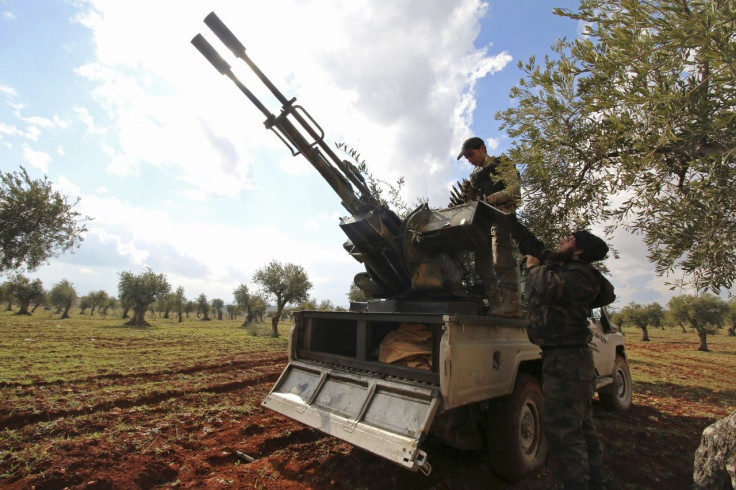More Conflicts Mean More Arms Sales, Chemezov Says; Russia Disregards US, Western Sanctions, Still To Export $15B Worth Weapons In 2015; Offers Iran New Anti-Aircraft Missile

Despite a threat of possible new slew of sanctions on top of already a pile load, there will be no stopping Russia in pursuing its plans to export its armaments in 2015.
Anatoly Isaikin, chief of Russia’s state-run arms agency Rosoboronexport, at the IDEX-2015 International Defense Exhibition in the United Arab Emirates, said on Sunday the goal of exporting weapons worth $15 billion “will be met in 2015” despite the Western sanctions Moscow had received because of the Ukraine crisis. It will “undoubtedly be fulfilled,” Isaikin said.
Russia could be facing anytime soon a new host of sanctions after separatists continued to breach the fragile ceasefire agreement that Ukraine, France and Germany worked so hard to get with Russian President Vladimir Putin. That ceasefire deal between Ukraine and Russia was ultimately agreed upon on Feb 12. But as Canadian Prime Minister Prime Minister Stephen Harper said earlier, he regards Mr Putin as a leader who “has systematically violated every agreement he's made." Despite the ceasefire deal, chaos still continues on the grounds of Ukraine. The agreement, it seemed, was only good on paper.
“Far from changing course, Russia's totally unjustifiable and illegal actions in eastern Ukraine have reached a new level with the separatists' blatant breach of the ceasefire to take control of Debaltseve, made possible only with the supply of Russian fighters and equipment on a very large scale," British Prime Minister David Cameron told lawmakers Monday. Part of the Feb 12 deal called for the withdrawal of heavy weapons of both sides from the front lines. Russia has been alleged to have not maintained its end of the bargain.
But Russia, it seemed, isn’t afraid of the looming threat of a new round of sanctions. Sergei Chemezov, CEO of the Russian tech development corporation Rostec, said on Monday that despite sanctions, the volume of Russian arms exports even “continue to grow.” In fact, in 2014, Russian foreign arms sales totalled $13 billion, spurred by conflicts in the Middle East.
“I don’t hide it, and everyone understands that the more conflicts there are, the more weapons are bought from us,” Chemezov said. “Our volumes continue to grow, despite sanctions. In particular it’s Latin America and the Middle East.”
TASS news agency on Monday reported Russia has offered its latest Antey-2500 missiles to Iran, after Western pressure in 2010 forced the former to scrap supplying the latter with S-300 surface-to-air missiles. "As far as Iran is concerned, we offered Antey-2500 instead of S-300. They are thinking. No decision has been made yet," TASS quoted Chemezov.
Chemezov said the Antey-2500 missile is a modernized version of S-300. The latter is already obsolete, replaced by the S-400 systems. The Antey-2500 offers enhanced combat capabilities, the Wall Street Journal reported Monday. It can destroy aircraft and ballistic missiles at a range of 1,500 miles, according to its manufacturer, Almaz-Antey.





















